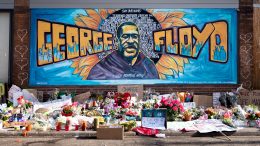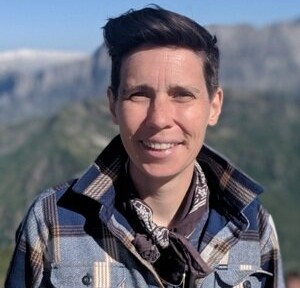It’s hard to comprehend how broken our country feels right now. The recent killings of African Americans at the hands of police — and in Atlanta, armed vigilantes — are horrific. So, too, are the nationwide acts of violence perpetrated against the people protesting these deaths.
It’s harder, still, to wrap our minds around how President Trump continues to incite hatred, violence and oppression in his speeches, tweets and strong-arm deeds — cheered on and echoed by many of his colleagues and supporters. Their white supremacy extends well beyond the White House to the very underpinnings of our society — including the systems that should be protecting all of us.
And of course, the racist violence and suppression of dissent come at a time when we’re also fighting a global pandemic — one that has sharply revealed the long-entrenched racial inequities in American society, as communities of color suffer more than white communities from the disease.
That’s why all communities, including environmentalists, must not look away during this difficult time.
One of the fundamental values behind environmental protection has always been justice — justice for those who breathe air and drink water, justice for those who have lived on the land for thousands of years, justice for wildlife beleaguered by poaching and habitat loss, justice for ecosystems being torn apart, justice for future generations who will need a livable climate.
Now environmental protection must also be understood as a fight for human justice — justice for people who’ve been harassed, murdered, marginalized and abused for far too long.
The systemic violence against African Americans, Native Americans and other peoples of color in this country is unacceptable. And although it isn’t exactly an environmental issue, it’s one more symptom of the same far-reaching oppression and subjugation that drive most of our environmental ills, ranging from climate change to pollution to the toxic chemicals and zoonotic diseases that enter our bodies. The same system of exploitation and abuse that has meant, for decades, that people of color have faced greater burdens from toxic air and water, climate change and the cascading health and economic problems that result.
Issues of conservation have always intersected with justice: justice across time and justice across space. That makes the environmental community a necessary, vital ally in the struggle against racial violence.
Because of the interconnected nature of these linked struggles, if we work to resolve one thing, the rest of these problems we face might start to follow.
If we demilitarize the police, if we stop beating people down, if we stop committing the types of violence that cascade from one generation to the next — well, that’s a step ahead on the long road before us. One that will give us all a bit more strength for the next fight to ensure that future generations will have a better, healthier planet on which to live.
If y’all could fix racism so I can focus on saving the planet, that would be great. Thanks. xo https://t.co/oZw1PNpQ1I
— Dr. Ayana Elizabeth Johnson (@ayanaeliza) June 3, 2020
Here’s our additional perspective as journalists: Our society can only resolve these issues if we listen to the people who’ve been affected most. We need to attune ourselves to listen, learn, reflect and commit to change. This will help identify the scars that need to heal and the systems that need to be replaced, along with the new systems that should take their place.
At The Revelator we’ve always asked people not to look away from the disasters unfolding around us. That’s true whether we’re talking about climate change, the extinction crisis or racial injustice.
Because while these ongoing crises of racism, police violence and oppression aren’t directly environmental issues, they’re issues of people and culture and society and justice. And all of those are worth fighting for.
![]()




1 thought on “Don’t Look Away”
Comments are closed.